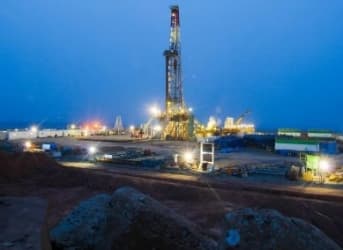Iraq is one of the major reasons why OPEC has been able to increase oil production over the past year, even as oil prices have dropped to six-year lows.
The war-torn country averaged 3.2 million barrels per day (mb/d) of production in 2014. But despite the onslaught from ISIS and the collapse in oil prices, Iraq succeeded in achieving steady gains in output, surpassing 4.1 mbd in September. Along with Saudi Arabia’s increase of around 600,000 barrels per day since 2014, Iraq has accounted for a majority of OPEC’s production gains over the past year, allowing the cartel to produce more than 31.5 mb/d – well in excess of its stated production target of 30 mb/d.
However, although Iraq has succeeded in defying gravity thus far, the cracks in the country’s oil success story are starting to show. Related: Statoil’s North Sea Success Provides Hope For World’s Depleted Fields
Genel Energy Plc, a London-based oil exploration company that is concentrated in the Kurdistan region of Iraq, trimmed its production forecast for the year, due to the late payments from the Kurdish Regional Government (KRG). The Iraqi central government in Baghdad and the KRG have been at odds over oil sales. In December 2014, the two sides reached an accord that would see the KRG exporting oil under the purview of the Iraqi state, in exchange for access to its portion of national revenues.
The collapse in oil prices has sapped the state of resources, however. That has held up payments to the KRG, which in turn has halted the transfer of funds to private oil companies operating within Kurdistan.
As a result, oil companies in Iraq are hit with a double whammy – not only are prices for their oil low, but they are not even receiving payments on time. Genel Energy said that the payment delays will mean the company will only be able to produce 85,000 to 90,000 barrels per day this year, down from its previous forecast of 90,000 to 100,000 barrels per day. The company’s share price fell by 6.34 percent on October 20 after the announcement. Related: Day Of Reckoning For U.S. Shale Will Have To Wait
“Given the payment situation has been irregular, we stopped investing in the drilling of the fields,” Genel’s CFO Ben Monaghan told Bloomberg. “Inevitably with conventional oil fields, if you stop investing, the production will begin to decline.” Genel cut its capital expenditure guidance to $150-$175 million for the year, down from $150-$200 million.
For the company, there are some reasons for hope. The KRG decided to skirt its agreement with Baghdad over the summer and begin exporting oil on its own terms. That has allowed for partial payments to oil companies, including Genel Energy, but also Gulf Keystone Petroleum and DNO ASA, a Norwegian E&P company.
Genel received a $16.5 million payment from the KRG on October 20 for its oil exports, the second month in a row that it was paid. In its October 20 statement, the company said that “The receipt of predictable export payments…would allow Genel to deliver the investment required to increase production.” The second payment offers some cautious optimism, and the company is striking a positive tone. “I think we have turned a corner there,” Genel Energy’s CEO Tony Hayward told The Wall Street Journal last week. Related: The Beginning Of A Dynamic Century In The Middle East
The KRG also submitted its second consecutive payment to Gulf Keystone, another important producer in Kurdistan. Collectively, companies operating in Kurdistan say they are owed more than $1 billion.
Kurdistan is dependent on oil for its economy, so the KRG is doing as much as it can to increase oil exports and square up with private companies. Kurdistan exported 620,000 barrels of oil per day in September through a pipeline that runs to the Turkish port of Ceyhan. That is a significant increase over the 470,000 barrels per day that the semi-autonomous region exported in August.
For now, these appear to be short-term problems. But if low oil prices, security concerns, or political instability (or a combination of all three) deter investment today, Iraq could fall short of its production goals over the long-term.
ADVERTISEMENT
By Nick Cunningham of Oilprice.com
More Top Reads From Oilprice.com:
- Is Oil Trending? How Twitter Influences Oil Price Volatility
- Oil Prices Still Not Low Enough To Fix The Markets
- Oil Market Showdown: Can Russia Outlast The Saudis?


















